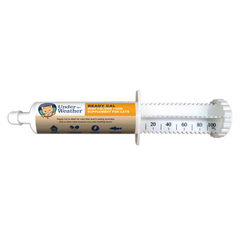Weight loss in cats is also known as anorexia, and if left untreated, can lead to hepatic lipidosis, or fatty liver, a life-threatening disease.
There can be many reasons why a cat will exhibit appetite loss, or even stop eating all together. Proper weight maintenance is critical to your cat’s overall health, so if you’ve noticed a change in your cat’s eating habits, determining the cause and addressing it as soon as possible is very important.
Why Is My Cat Not Eating?
Illness
A change in eating habits is often one of the first signs of illness. There are many health-related issues that could be causing your cat to lose interest in food, eat less, or not eat at all.
Common cat related illnesses include cancer, Feline Immunodeficiency Virus, kidney disease, upper respiratory infection, pancreatitis, diabetes, and more.
Lost Sense of Smell/Taste
With some health problems, like upper respiratory infections, cats may lose their sense of smell and even taste due to nasal congestion. Understandably, a cat that can’t smell, or taste may have a decreased interest in food.
Dental Problems
As cats age, they may develop dental problems. Gingivitis, tooth decay, abscesses, loss of teeth, as well as general inflammation in the mouth can lead to pain and food avoidance.
Internal Obstruction
Kittens in particular have been known to eat items like tinsel, ribbons, string, and other objects that can potentially become caught in the stomach or small intestines. An internal obstruction is a dangerous and very serious medical condition that can cause loss of appetite, pain, vomiting, diarrhea, and if not treated promptly, even death.
Stress and Anxiety
Stress and anxiety can come from any changes in your cat’s routine. Moving to a new home, adding a new pet to the family, or the loss of an existing pet are examples of changes that your cat may be struggling with. When a cat is experiencing anxiety, they may exhibit behavioral changes, and losing weight due to eating less is one of them.
Often this is a temporary situation that alleviates itself in time, but if you feel your cat is suffering, consider adding a calming supplement to their diet. Calming Chews contain all-natural ingredients that promote relaxation, encourage calmness, and boost serotonin for a balanced mood.
Related: Signs of Cat Anxiety
Age
As cats age, it's normal for their appetite and eating habits to change, so it is not uncommon for older cats to experience weight loss.
With kittens who are not gaining weight, the problem may be because they do not yet have a set routine, or they may just be finicky and picky eaters, something that with time and the opportunity to try new foods, will resolve on its own.
What Should I Do if My Cat is Not Eating?
Consult Your Vet
If your cat is not eating, step #1 is to consult your veterinarian. The list above looks at just some of the many reasons your cat may be avoiding food, and it is imperative that a cause is determined, so treatment can begin as soon as possible.
Add a High-Calorie Supplement
Weight loss can quickly lead to malnutrition and further health issues. Adding a high-calorie supplement will help provide essential calories your cat needs daily to gain or maintain a healthy weight. A supplement can also help to stimulate your cat’s appetite and boost their energy.

How Can I Encourage My Cat To Eat?
- Serve wet food instead of dry, and offer a variety of different types and brands.
- Warm their food up. When food is warmed, it smells stronger, making it much more appealing to your cat. This can be helpful for older cats too, as their sense of smell decreases with age. Warming their food also makes it softer and easier to eat, especially if your cat has dental issues.
- Choose strong smelling flavors of wet food, like those containing fish.
- Pour some chicken broth or tuna juice over their food.
- Offer canned fish like sardines, tuna, mackerel, and salmon. And cooked meats including beef, chicken, turkey, and even deli meats in moderation.
- Experiment with different foods like meat baby foods, scrambled eggs, and oatmeal.
- Try hand feeding your cat. If your cat enjoys interacting with you, and if getting calories into them is important, hand feeding can be a great solution, as well as a bonding experience for you both.
It’s all about trial and error. Keep notes about the foods your cat seems to prefer so you can offer them again.
The Bottom Line: The longer a cat goes without proper nutrition, the more likely they are to experience major health issues, including a serious risk of developing hepatic lipidosis, a life-threatening liver disease.
Taking action quickly is the key to keeping your cat healthy, ensuring they will live a long and happy life.
RELATED: Cat Not Eating














